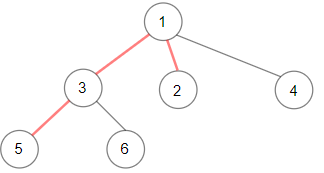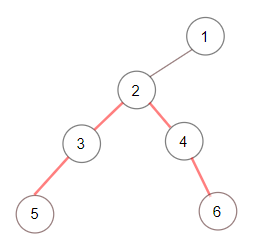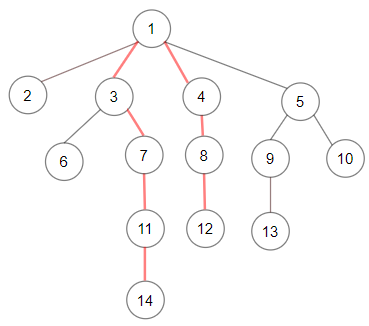1522.Diameter of N-Ary Tree
Problem description:
Given a root of an N-ary tree, you need to compute the length of the diameter of the tree.
The diameter of an N-ary tree is the length of the longest path between any two nodes in the tree. This path may or may not pass through the root.
(Nary-Tree input serialization is represented in their level order traversal, each group of children is separated by the null value.)
Example 1:

1 | Input: root = [1,null,3,2,4,null,5,6] |
Example 2:

1 | Input: root = [1,null,2,null,3,4,null,5,null,6] |
Example 3:

1 | Input: root = [1,null,2,3,4,5,null,null,6,7,null,8,null,9,10,null,null,11,null,12,null,13,null,null,14] |
Constraints:
- The depth of the n-ary tree is less than or equal to
1000. - The total number of nodes is between
[1, 104].
Solution:
Need to have two variable first and second to record the top 2 longest path under current root.
Have a global variable res to keep result
Only need to return the longest path to parent, which is first+1
1 | """ |
time complexity: $O()$
space complexity: $O()$
reference:
related problem: